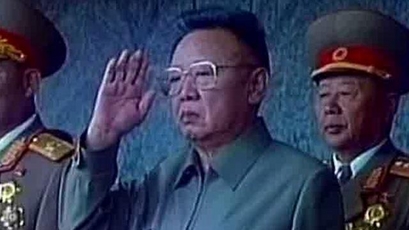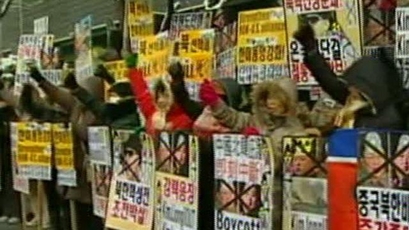South Korea: North Korea builds up special forces
SEOUL, South Korea – North Korea has faster, more powerful tanks prowling the world's most heavily armed border and 200,000 special forces poised to carry out assassinations and cause havoc in South Korea, a major military review said Thursday.
Seoul's Defense Ministry report, released every two years, signals that the North's military threat has expanded. It comes as President Lee Myung-bak's administration scrambles to respond to criticism that it was unprepared for a Nov. 23 North Korean artillery attack on a front-line island that killed four people.
That attack, along with an alleged North Korean torpedoing of a warship in March, has prompted South Korea to define the North in the defense document as its "enemy," a stronger description than in 2008 when the North was only called a "direct and serious threat."
South Korean defense documents stopped referring to North Korea as "the main enemy" — a constant subject of North Korean criticism — in 2004 amid then-warming ties. The North's state media angrily reacted to the new reference later Thursday, calling it a "grave provocation" that could trigger war.
The new document says the North intends to rely on its nuclear program, special forces, long-range artillery, submarines and cyber warfare forces as a counterweight to South Korea's high-tech conventional military.
North Korea has 200,000 special operations forces, the report says, an increase from 180,000 in the ministry's last assessment in 2008. Those forces are aimed at carrying out assassinations and infiltrating and disrupting key facilities in South Korea, it said.
The North's army deploys many of its 13,600 long-range artillery guns along the Demilitarized Zone, ready to launch surprise artillery barrages on Seoul and its adjacent areas, the document said. Seoul is only about 30 miles (50 kilometers) away from the border.
The country also has developed a new kind of battle tank with better firepower and mobility than previous ones, and the modern tanks have been deployed near the border, it said.
The North's authoritarian leader Kim Jong Il has made a priority of trying to build military power superior to the South's, and its forces "are posing a serious threat to South Korea's military," the document said.
However, despite the North's asymmetrical forces, analysts say there is little likelihood that North Korea would launch an all-out war against South Korea, whose military is bolstered by 28,500 American troops in the country. The U.S. has repeatedly promised to keep South Korea under its nuclear umbrella.
The document reconfirmed that the U.S. will deploy an additional 690,000 troops, 160 navy ships and 2,000 military aircraft in the event of a war on the peninsula.
South Korea has about 650,000 troops of its own, while the North is thought to have 1.2 million soldiers.
The two Koreas are still technically at war because their 1950-53 Korean War ended with an armistice, not a peace treaty.
Chinese Foreign Ministry spokeswoman Jiang Yu said Thursday that Beijing supports the resumption of the six-party talks as the "only right approach to resolve peninsula-related issues."
The talks on North Korea's nuclear program involve the two Koreas, the U.S., China, Japan and Russia, but have been on hold for nearly two years.
___
Associated Press writer Cara Anna in Beijing contributed to this report.
http://news.yahoo.com/s/ap/20101230/ap_on_re_as/as_koreas_clash




Tidak ada komentar:
Posting Komentar